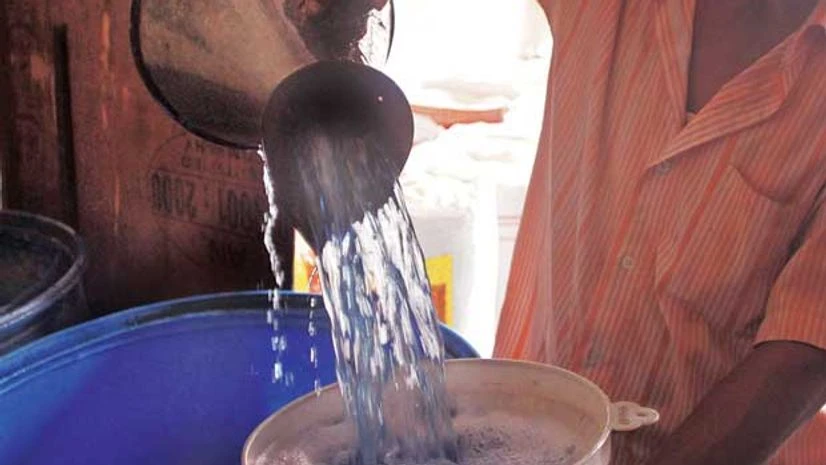Lack of bank accounts, their seeding with Aadhaar and the problems in creating biometric database of beneficiaries have pushed back the launch of the ambitious plan to introduce Direct Benefit Transfer in Kerosene (DBTK) by at least a month.
DBTK, under which kerosene subsidy would be transferred directly into consumers’ bank accounts, similar to cooking gas subsidy, was to be rolled out in 40 districts across nine states from April 1. “A host of problems have led to a situation where the rollout of the DBTK scheme has been pushed by at least a month,” said a senior oil ministry official, who did not wish to be identified. “Bank accounts of all the beneficiaries have not been created. Also, the seeding with Aadhaar numbers is yet to happen.”
This highlights how the lack of a centralised database could play spoilsport in implementing schemes where state governments are involved. DBTK aims at removing subsidised kerosene from the supply chain for better targeting of beneficiaries, eliminating pilferage and black-marketing, and cutting down adulteration of the cheap fuel with diesel. While Gujarat and Maharashtra are all set to roll out direct cash transfer, other states are yet to catch up.
More From This Section
“Another major issue is the difficulty being experienced in creation of biometrics of beneficiaries at the point of sale (fair price shop) and overlapping of the states’ list of consumers with the list of below-poverty-line (BPL) households. Also, with the launch of the Ujjwala scheme slated on May 1, the focus has temporarily shifted,” said the official cited above.
As part of the Ujjwala scheme, the government has already announced providing liquefied petroleum gas connections to 50 million BPL households in three years.
Last month, Union petroleum minister Dharmendra Pradhan held a meeting with state government representatives on DBTK, where the Centre promised advance transfer of subsidies to beneficiaries for the smooth transition to DBT, while the states highlighted their concerns in rolling out the scheme.
The meeting had witnessed participation from 19 states and Union territories and senior executives of oil marketing companies (OMCs). “Various issues raised by the states having a bearing on implementation of the scheme included the basis of identifying beneficiaries, use of point-of-sale machines, integration with the existing public distribution system, and modalities of availability of white (non-subsidised) kerosene,” the ministry stated.
Pradhan had told Business Standard in an interview last month that the Centre was hopeful of covering at least 33 districts in nine states in 2016-17. “This will be a substantial leap forward in the reform process. We are working to get the completely digitised data of consumers prepared. Many states have prepared their own lists and scheme and are ready for cooperation in a bigger way. Many others have offered covering the entire state under the scheme by end of the financial year,” he had said.
States will be given cash incentives of 75 per cent of subsidy saving during the first two years, 50 per cent in the third year, and 25 per cent in the fourth year. The scheme will be launched initially in Chhattisgarh, Haryana, Himachal Pradesh, Jharkhand, Madhya Pradesh, Maharashtra, Punjab, Rajasthan and Gujarat, even as more states are likely to join soon.
TEETHING ISSUES
-
Kerosene subsidy to be transferred directly into Aadhaar-linked bank accounts of consumers
-
The scheme was to be rolled out in 40 districts across nine states from April 1
-
Problems in creating beneficiaries’ biometric database push the launch date by at least a month

)
